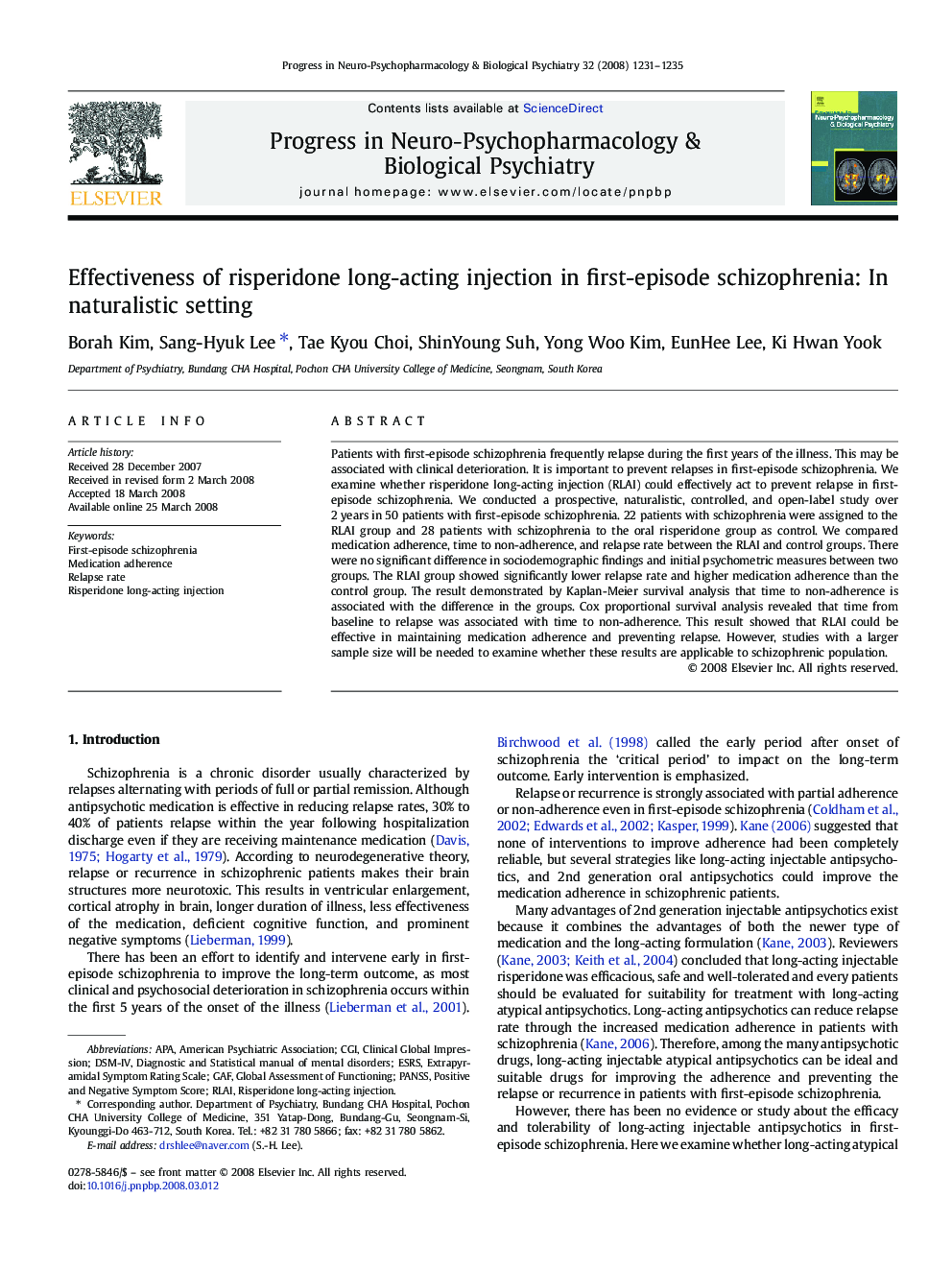| Article ID | Journal | Published Year | Pages | File Type |
|---|---|---|---|---|
| 2566585 | Progress in Neuro-Psychopharmacology and Biological Psychiatry | 2008 | 5 Pages |
Patients with first-episode schizophrenia frequently relapse during the first years of the illness. This may be associated with clinical deterioration. It is important to prevent relapses in first-episode schizophrenia. We examine whether risperidone long-acting injection (RLAI) could effectively act to prevent relapse in first-episode schizophrenia. We conducted a prospective, naturalistic, controlled, and open-label study over 2 years in 50 patients with first-episode schizophrenia. 22 patients with schizophrenia were assigned to the RLAI group and 28 patients with schizophrenia to the oral risperidone group as control. We compared medication adherence, time to non-adherence, and relapse rate between the RLAI and control groups. There were no significant difference in sociodemographic findings and initial psychometric measures between two groups. The RLAI group showed significantly lower relapse rate and higher medication adherence than the control group. The result demonstrated by Kaplan-Meier survival analysis that time to non-adherence is associated with the difference in the groups. Cox proportional survival analysis revealed that time from baseline to relapse was associated with time to non-adherence. This result showed that RLAI could be effective in maintaining medication adherence and preventing relapse. However, studies with a larger sample size will be needed to examine whether these results are applicable to schizophrenic population.
